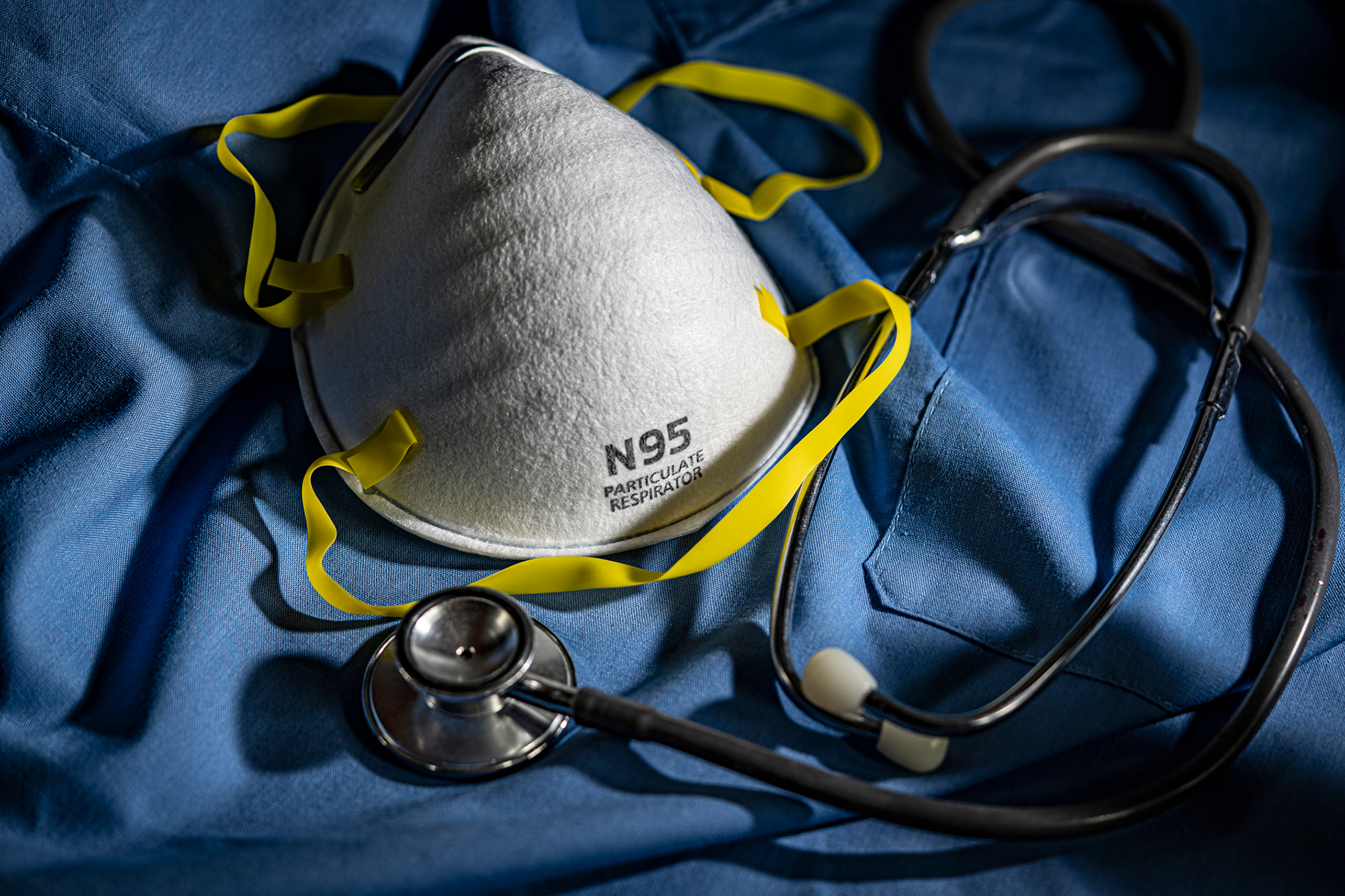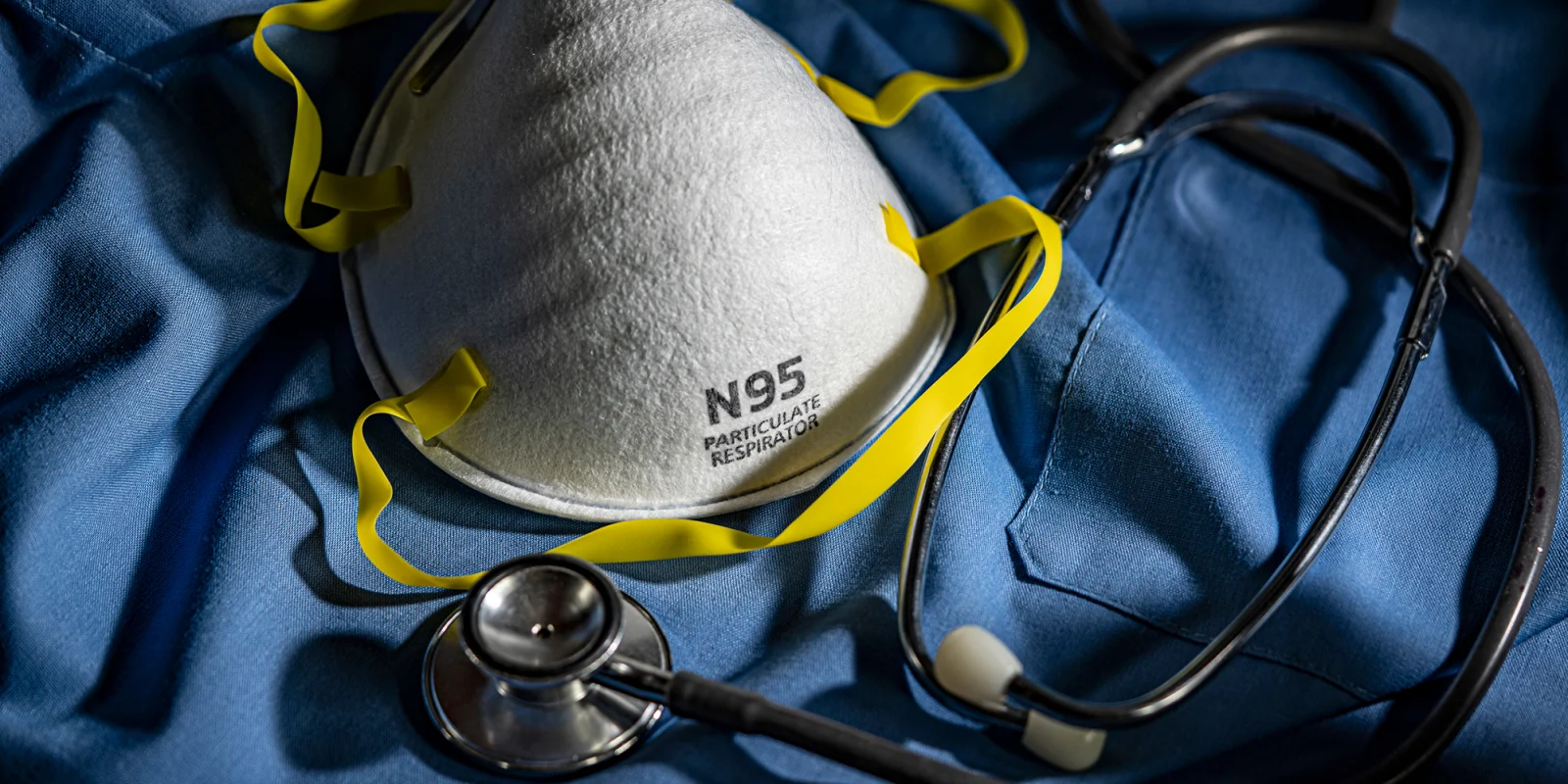
As clinicians, we are trained to follow several specific ethical principles. Among them is the duty to care, and another is the duty to do no harm. In an era where potentially lethal infections place clinicians at risk of contracting the illness, these principles combine to include protecting one’s self. This permits care and has the added benefit of reducing the risks the health care worker poses to their family, colleagues, and subsequent patients. I’d like to present a case that illustrates failures of a system that did nothing to anticipate a long-predicted pandemic, eliminated sufficient stockpiles of materials to cope with a pandemic, and has failed to move quickly enough to recognize the need for adequate and appropriate PPE for all health care workers. This has left clinicians with the urgent need to do workarounds if they are willing to continue participating in patient care.
A patient, presenting with a significant complex odontogenic (dental) abscess, requiring tooth extraction and incision and drainage, is seen in a private office by a young solo practitioner. The surgeon is one of a few oral and maxillofacial (OMF) surgeons in their rural community credentialed in this procedure. Though fully capable of caring for the patient in the office, the surgeon does not have access to an N95 mask required for appropriate treatment and is well aware of the increased risks to health care providers working around the nasal and oropharyngeal mucosa.
Even after calls to local and distant suppliers, the surgeon is struggling to find available N95 masks. She makes a call to the only local hospital and reaches an administrator, who denies a request for providing two N95 masks. Other protective equipment, however, including a face shield, gloves, etc. is readily available. But the mask is crucial, because there is no testing available to test the surgeon or patient.
The surgeon has been well, and social distancing with the family that includes children. But the patient has been out and about in the community and not social distancing. It is this real risk of COVID-19 that is driving the surgeon’s desire for proper PPE and the desire to find reasonable accommodation for the patient’s care. Alternative measures include sending the patient to a distant hospital facility that has OMF on staff, admitting the patient to the local hospital for intensive IV antibiotics, or continuing oral antibiotics that have not proven effective.
The surgeon considers a different alternative: negotiating with the local ER. Would the ER rather have the patient admitted via their portal for IV antibiotics, or provide equipment for proper care in the office setting? Unfortunately, discussions with the head administrator and the admitting nurse in the ER are unproductive, and the request is repeatedly denied. Finally, the surgeon makes one last attempt. After a discussion with the ER physician, they come to an agreement that two masks can be surreptitiously picked up by the surgeon personally, with a guarantee that no more will be requested and that the masks will be cleaned and reused as needed.
One week after the patient had been successfully treated in the doctor’s office, a county health official reaches out and offers to provide additional proper masks. However, when the box is delivered to the surgeon, it contains only routine surgical masks, not the essential N95s.
Scenarios like this must be playing out all over the country. Why should caring for patients involve increased personal risks for medical staff, complex negotiations for simple requests, or alternatively, simply not caring for patients? Supply-side economics leading to “just in time” stocking, outsourcing production for cheaper labor costs to international factories, and the nationwide elimination of many medical facilities in the name of cost control make providing care challenging in both urban and rural areas of the country. It has become apparent through this administration, and even prior administrations, that pandemic preparation has been limited, underfunded, and not valued. The lack of reasonable PPE has resulted in clinicians in Italy falling ill far beyond reasonable expectations, and this is a scenario that is highly likely to be replayed here in the U.S. Even more shocking has been the recent callous reduction of physician and nursing salaries at some of our leading hospitals in an effort to contain costs associated with the cancellations of elective procedures.
Our valued caregivers should not be punished by our for-profit medical care system. Successful care should not have to rely on the negotiating skills of individual medical professionals. But it seems that that is exactly where we are, nationwide, at this critical moment.
Click here to see more perspectives on COVID-19 from the Doximity network.
Click here for up-to-date news about COVID-19 on Doximity.






